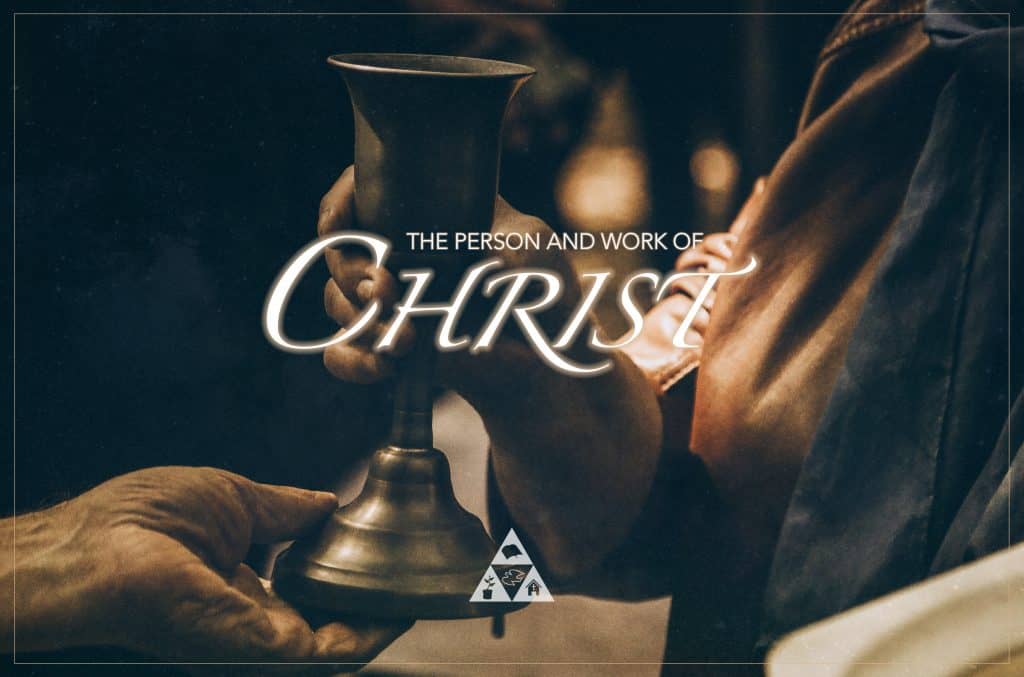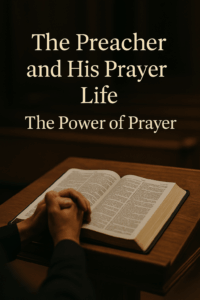⏱️ Estimated Reading Time: 13 min read
Some Christmas cards are brightly colored red, green, or mystic-blue and golden beams, or Courier and Ives prints and unmistakably Christmastime greetings. Such cards remind me of Isaiah 40 and of the birth narratives in the Gospels. There’s no mistaking the promise of Christ, or the familiar depiction of Mary and Joseph and the baby Jesus, as well as the angels the shepherds in the field. These are obvious Christmas cards. But then, there are other kinds of cards: more delicate, less apparent, but still is faithful and is beautiful. Perhaps the snowfall into a wood of Aspen. Maybe a photograph of a church on Christmas Eve. Perhaps, simply, there is a cover drawing of a wreath. Well, such cards are no less beautiful because their meaning is restrained. Psalm 85, like all of the Psalms of Advent, or like the latter Christmas cards. There is a subtlety, a misty veil over the subjects of the card. Yet, it is still a Christmas message from God to us today. And so, we turn in our Bibles to Psalm 85, prepared for the director of music by “the sons of Korah.” And what follows is a Psalm that recounts, cries out for, and anticipates the peacefulness of God in the restoration of all things. I rather like the division given by David J. Zucker:
“In brief, the psalm addresses the people’s return to Judah, and forgiveness for their wrongdoing. This is followed by a prayer for full restoration, and the psalmist’s anticipation that God will bring peace and salvation.”[1]
But let us attend, first, to the title. For this, also, is part of the inerrant and the infallible Word of God. What does this mean?
Exodus 6:24 says that “the sons of Korah: Assir, Elkanah, and Abiasaph; these are the clans of the Korahites” (ESV).
The Psalter scholar David Mitchell writes, “the Korahite Lévites were musicians and singers in the temple cult . . .”[2] The Korahites were responsible for the care of the sanctuary, the Ark of the covenant, the altars, the curtain, and everything related to the liturgical and ceremonial life of Israel. They were under the supervision of Eleazar, the son of Aaron.
The patriarch of this clan, Korah, was one of the rebellious group of men who challenged the divinely appointed divinely appointed leadership of Moses and Aaron, that is, rebellion against the priesthood and prophetic ministry (Numbers chapter 16).
The Bible describes a horrendous judgment upon these rebels, including Korah. God caused the earth to open up, and as the ground under them split apart, the rebels were swallowed by the hungry earth, along with their households and almost everything associated with them. Number 16:28 through 35 gives the amazing details of God’s judgment upon Korah and his contumacious cohorts.
What is interesting is that God spared the Sons of Korah. Numbers 26:9 through 11 tells that story. Indeed, after seven generations, the prophet Samuel came out of the line of Korah (1 Chronicles 6:31 through 38; first Chronicles 38; 1 Samuel 1:1, 20.). The Korahites not only watched over the Ark of the Covenant but they formed a strong warfighter battalion under King David during wartime. Afterwards, during David’s royal reign, the Korahites, along with Asaph and others, played an important role in liturgical leadership whenever the Ark of the Covenant was brought to Jerusalem. These men were composers, instrumentalist, and prophets.
There are 11 songs attributed to the Sons of Korah. The sons of Korah were responsible for Psalm 42; Psalms 44 – 49; Psalms 84 and 85; and Psalms 87 and 88.
Psalm 85 teaches us to anticipate the restoration of Shalom. Shalom is more than the absence of war. Shalom is aware that really has no equal but it is a wholeness, a completion, is life as it is meant to be lived.[3] Even as the psalmist anticipated restoration, we anticipate that restoration of shalom through Jesus Christ. How is this so? Psalm 85 reveals, at least, three notable postures of anticipation.
The first is this:
- We anticipate the restoration of shalom through God’s initiative.
In verses, one through three the Psalmist recounts past mercies of God.
“You showed favor to your land, O Lord; you restored the fortunes of Jacob. You for gave the iniquity of your people and covered all their sins.”
Clearly, the psalmist grounds the anticipation for the future in the initiatives of God in the past. And what is most important for us to see is that it is indeed the initiative of Almighty God. Note how the passage declares, “You showed…” And “You restored…” And “You forgave…” And yet again “[You]… covered all their sins;” “You set aside all your wrath;” and “[You]… turned from your fierce anger.” Thus, we see, without any variance whatsoever, that the Psalmist is confessionally reliant upon the originating movement of God.
It is imperative for us to understand that the condition that we find ourselves in as human beings is not one that can be remedied through our own resourcefulness. Our fallen condition may only be remedied by God. As the Psalm recalls God’s faithfulness to the cries of spiritual forebearers, so, too, think about the faith of your fathers and your mothers and great grandmothers and great-grandfathers and how they called upon the Lord in days past. We would do well to remember the faithfulness of our loved ones who have gone before. Perhaps, the point of faithful reference is, indeed, your mother or grandmother. Perhaps a grandfather. Maybe, though, the faithful one in your mind is a teacher; possibly a coach. But the important thing is that you see that faithful believer who have gone before were faithful because God took the first step towards them. Their witness is the golden truth that God initiates all saving work.
We would do well then in both composing our prayers, making covenant with Almighty God, and renewing the covenant with God week by week here in this place, to remember that it is God who takes the lead.
Even now, as you bask in a season of joys, as you anticipate your future, you do well to consider the glorious activities of God in the past. Remember his faithfulness. Ground your hope in your faith in what God has already done. And realize that God himself takes the first step toward us. This Psalm, Psalm 85, is a testimony to this vital truth in understanding God and His love.
There is another way that we anticipate the shalom of God in our lives:
- We anticipate the restoration of shalom through God’s attributes.
Beginning with verse four and moving on through verse seven we see that the Psalmist is now petitioning God to do again what he has done before. The important thing to see is that he grounds this prayer in the very attributes of God. He cries out for restoration, and he calls for God to put away his displeasure with Israel; and that he will put away his anger forever. He puts the question to God, “Will you not revive us again, that your people may rejoice in you? Show us your unfailing love, O Lord, and grant us your salvation.” Thus, in verse four we see the essential attribute of God as it is related to the covenant that he is made with Israel, and that is his “unfailing love” (New International Version of the Holy Bible). The English Standard Version of the Holy Bible calls this word “steadfast love.” The Hebrew word is the word “Che-sed.”
“Show us chasdecha (Thy chesed, kindness, steadfast love), Hashem, and grant us Thy salvation” (Psalm 85:7 OJB).[4]
This word is as important as the word “Shalom.” Chesed speaks of God‘s covenant love. This is the love of God that will never let you go. This is the love of God found in the Lord Jesus Christ who said, “I will never leave you nor for sake you.”[5] The central attribute of God, an incommunicable attribute, that is, an attribute that is unique to God and cannot be shared, is his unfailing, unflinching, and absolute unconditional love.
I’ve told this story before in other contexts, but it bears repeating. It’s a story that many of us can relate to. I remember when our son, John Michael, was just a toddler. He was beginning to walk. I would hold him up and help to balance him on his feet. He would walk three or four steps, and he would turn around and look at me. I would encourage him to walk some more. Again, he would walk a few steps and look at me. If he began to wobble, he knew that I was there. He was able to go forward in that little phase of his life because he trusted in an unswerving and completely dedicated love and protection that I had for him. Thus, he was able to walk into his future.
Some of you are having trouble walking forward in life today. Some of you are having trouble going forward in your relationships. Many of us experience worries over many things which grow like a deadly bacterium, and, then, attack our spiritual nervous system. The worries immobilize us in life. But, oh, if we would look to the Savior, the Lord Jesus Christ, and recognize that his covenant love will never let us go, then, we will more nearly move forward to the place God wants us to be. There is healing with Jesus for His love casts out fear.[6] Thus, I direct you to the steadfast love of God in this Psalm. Go and drink the remedy, the cordial of life, from the Lord of life, so that you can move again; so that you can take your baby steps and, soon, begin to run free into the sunlit uplands of God’s providence and his plan for your life.
There is a third posture of anticipation in Psalm 85.
- We anticipate the restoration of shalom through God’s Messiah.
In the final division of the psalm, the Psalmist anticipates the complete restoration of shalom for the Israelites—wholeness, peace, purpose in living, protection, mental and spiritual wellness—as he anticipates the coming of the Messiah.
John Calvin, in his commentary on Psalm 85, wrote these words:
“I cordially embrace the opinion which is held by many, that we have here a prophecy concerning the kingdom of Christ. There is no doubt that the faithful lifted up their eyes to Him when their faith had need of encouragement and support in reference to the restoration of the Church; and especially after their return from Babylon.”[7]
The shalom that the psalmist anticipated found its fulfillment in the great crescendo of the sacred text:
“Love and faithfulness meet together; righteousness and peace kiss each other. Faithfulness springs forth from the earth, and righteousness looks down from heaven.”
The meaning of the text that “love and faithfulness meet together, righteousness and peace kiss each other” is not in anticipation of what man will do in response to God’s initiative and God’s attributes, but the words are, in fact, composed in such a way that the activity is completely divine. It is God’s loving God’s faithfulness that meet together in one person, the Lord Jesus Christ. It is God’s righteousness through Christ and God’s peace — his completeness and his wholeness — that unite in the one God-man, our Lord, and Savior Jesus Christ. We must not imagine that as a result of remembering God’s activities and pleading to God that we will somehow come to this new glorious state know. It is God himself who becomes the very thing that we desire. Is only when we look to him, when we have faith in him, and when we receive him as our God and our Savior, that the benefits of his attributes and the blessings of all of the divine good deposited in the one person of Jesus, becomes the glorious covering for our lives. Our hope for restoration of all things is not tied to ourselves but completely tied to Almighty God.
Oh, how I love this passage: “righteousness and peace kiss each other.” My beloved, this is not a mere kiss on the cheek. This is the kiss of man and wife. It is the kiss of union were to become one. This is the perfect union of God and man and yet never a mixture of the two. Jesus Christ is the very fulfillment of this Psalm, and he is the one who is anticipated. His Advent is the fulfillment of Psalm 85 and the beginning of the marvelous restoration of all things which starts in your life and mine and spreads through our lives, through our churches, through the ages and the generations, until he comes again in his second advent.
Conclusion
Thus, we see this Psalm easing back down in terms of its emotional meter. Or in verses 12 and 13 we see that the land yields its harvest and God prepares the steps of those who love him. This is the great blessing of any of you who will turn and look to God in Christ this morning. He will order your steps. He will make your way smooth. He will bring fruit to the fields of your lives. No, this is not a health and wealth Gospel promise, it is a picture of what God does in the souls of human beings who turn to him and receive his grand initiative in the Gospel. And it is also the ultimate panoramic landscape painting from the finger of God as he restores all things.
As John Milton wrote “Paradise Lost” it was necessary for him to complete the biblical narrative with “Paradise Regained.” He got it right. For the Gospel is a story of restoration; restoration of a tragic fallen world with its primary actor, humankind; restoration through God’s initiative, because of God’s attributes, and through God’s only begotten Son, the Prince of Peace, Jesus Christ.
And this is the power of the Gospel embedded in Psalm 85. It is the power of the Gospel that is available to any who call upon this one in whom righteousness and peace kiss.
The shalom we intuitively long for is the shalom that God offers through the advent of his Son, our Savior, Jesus the Christ. He has come. He is coming again. And he comes into the heart and life of any who call upon him today.
[1] David J. Zucker, “Restructuring Psalm 85,” Jewish Bible Quarterly 35, no. 1 (January 2007): 50, accessed December 9, 2017, https://tinyurl.com/yahd6vus.
[2] David C. Mitchell, “‘God Will Redeem My Soul from Sheol’: The Psalms of the Sons of Korah,” Journal for the Study of the Old Testament 30, no. 3 (March 2006): 367, accessed December 9, 2017, http://ezproxy.erskine.edu:2048/login?url=http://search.ebscohost.com/login.aspx?direct=true&AuthType=ip,uid&db=rfh&AN=ATLA0001512871&site=ehost-live&scope=site.
[3] Some have noted the similarities and differences between shalom and eirene. See Wolfgang M W (Max Wilhelm) Roth, “Language of Peace: Shalom and Eirene,” Explor3, no. 2 (September 1977), accessed December 9, 2017, http://ezproxy.erskine.edu:2048/login?url=http://search.ebscohost.com/login.aspx?direct=true&AuthType=ip,uid&db=rfh&AN=ATLA0000769685&site=ehost-live&scope=site.
[4] The Orthodox Jewish Bible, fourth edition, OJB. Copyright 2002, 2003, 2008, 2010, 2011 by Artists for Israel International. All rights reserved.
[5] Hebrews 13:5.
[6] 1 John 4:18.
[7] John Calvin, “Calvin’s Commentary,” Psalm 85, accessed December 09, 2017, http://biblehub.com/commentaries/calvin/psalms/85.htm.




